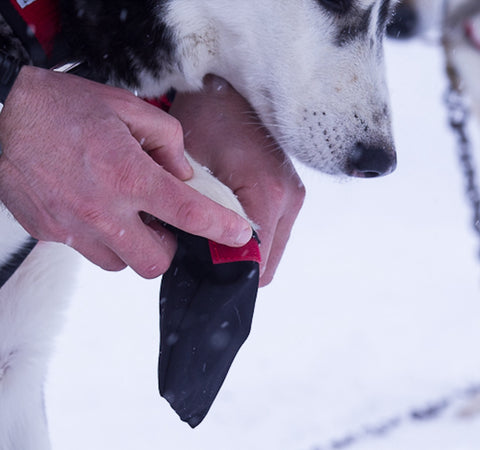Ever caught your furry friend in the act, obsessively licking their paws? While it might seem like an innocent grooming habit, there's often more to this story. Dogs licking their paws can be a red flag for pet owners, signaling potential allergy issues lurking beneath the surface. From environmental allergens to food sensitivities, various triggers can make your pup uncomfortable. Let's unravel the mystery behind paw licking, explore the common causes, and find out how to give your dog the relief they deserve.
Why Do Dogs Lick Their Paws?
Dogs use their mouths much like we use our hands – to explore, to clean, and sometimes, to relieve discomfort. While occasional paw licking is normal for grooming, excessive licking, especially if focused on one paw or the paws are licked until they're sore, can indicate an issue. Allergies are a primary cause of discomfort leading to obsessive paw licking, but it's crucial to rule out other possibilities like injuries, infections, or foreign bodies lodged between the toes.
The Allergy Connection
Allergies in dogs manifest differently than in humans. Instead of sneezing or a runny nose, a dog's skin might become inflamed, itchy, and irritable – a condition known as allergic dermatitis. When dogs lick their paws excessively, they're often trying to soothe the itchiness caused by one of the following types of allergies:
- Environmental Allergies: Just like people, dogs can be allergic to pollen, mold, dust, and mites. These allergies can be seasonal or year-round, depending on what the dog is allergic to.
- Food Allergies: Certain ingredients in dog food, such as beef, chicken, dairy, or wheat, can trigger an allergic reaction.
- Contact Allergies: Less common but still possible, dogs might react to substances they touch, like certain carpets, cleaners, or even the grass they walk on.
Recognizing Allergy Symptoms
Besides paw licking, dogs with allergies may exhibit other symptoms, including:
- Scratching or biting other parts of the body
- Red, inflamed skin
- Ear infections
- Sneezing, coughing, or wheezing
- Gastrointestinal issues like vomiting or diarrhea
Finding Relief for Your Pooch
If you suspect your dog's paw licking is allergy-related, the first step is to visit your vet. They might recommend:
- Allergy Testing: To identify specific allergens your dog reacts to.
- Dietary Changes: If food allergies are suspected, a change in diet or a food elimination trial may be necessary.
- Medications: Antihistamines, steroids, or more advanced treatments like immunotherapy (allergy shots) can help manage symptoms.
- Topical Treatments: Special shampoos, creams, or ointments can relieve skin irritation and inflammation.
Prevention Tips
While not all allergies can be prevented, you can take steps to reduce your dog's exposure to known allergens. Regular baths, keeping the house clean and dust-free, and using hypoallergenic bedding can all help. For food allergies, providing a balanced diet made from high-quality ingredients and free from known allergens is key.
Conclusion:
Watching your dog suffer from allergy-induced discomfort can be heart-wrenching. Understanding that excessive paw licking is a potential sign of allergies is the first step toward finding a solution. With the right approach, including veterinary care, lifestyle adjustments, and a lot of love, you can help your furry friend lead a happier, more comfortable life.
We suggest this product to protect your dog paw when recovery:
Remember, every dog is unique, and what works for one may not work for another. It's about finding the right balance and treatment plan for your individual pup. Here's to happier, healthier days ahead for your dog!



